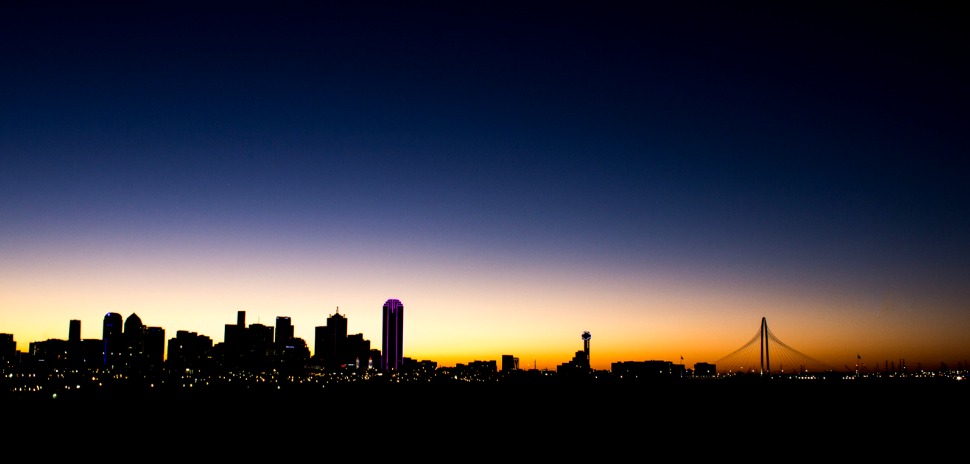Mention “tech cities,” and what might comes to mind are Silicon Valley, Chicago, Seattle, New York City, or Austin. But, Dallas-Fort Worth is emerging as a tech market, according to two new reports.
“People have thought of Austin as Silicon Prairie for a long time,” said Ali Greenwood, vice president of data center solutions with commercial real estate firm JLL. This is logical, given that Dell, Apple, and Oracle have a presence there as do many technology startups.
“People want to be here. They want to put down roots here.”
Jeff Eiting
However, Greenwood said the sheer volume of Fortune 500 companies in DFW has attracted tech and other companies from elsewhere. Because of this, and because of DFW’s history in technology, the region is quietly, but steadily, building its name as a tech destination.

Jeff Eiting, CBRE
Commercial real estate firm CBRE’s just-released “2017 Tech-30” report indicates that “tech” is more than software development. The industry includes biotech, media/entertainment, manufacturers, and telecommunications.
“DFW has been an ideal place for technology companies for a while,” said Jeff Eiting, CBRE first vice president who, with CBRE Senior Vice President Clay Vaughn, leads Dallas’ technology media practice. “That history dates back to the Telecom Corridor [in Richardson, which grew during the 1990s].”
On the other side of the coin, entrepreneurs who begin businesses in DFW end up staying.
“People want to be here,” Eiting said. “They want to put down roots here.”
TECH BY THE NUMBERS
The CBRE report measured the technology industry’s impact on 30 North American office markets. Based on the numbers, DFW is considered an emerging market in both high-tech job growth and office space.
Here’s a look further into the numbers:
- The CBRE report showed that the growth rate of new tech jobs in the DFW area was 12.5 percent from 2015-2016, versus 10.8 percent in 2013-2014.
- Austin, saw its rate of tech job growth drop from 33.4 precent in 2013-2014 to 22.9 percent in 2015-2016.
- Austin is considered a “growth leader” in tech, according to CBRE, with DFW as an emerging market.
- Both Austin and DFW are considered stable/maturing markets on the tech office market cycle.
JLL’s just-released “Top 6 Trends” report shows that 20 percent of office space in DFW is leased to tech companies, with 60 percent of office space in Austin going to technology companies.
“When you look at our economy, as a whole, one of our highest growth sectors is tech.”
Ali Greenwood
“When you look at our economy, as a whole, one of our highest growth sectors is tech,” JLL’s Greenwood said. “But the DFW market is an industry-diverse vertical market. That’s why we can sustain economic growth, and it’s why our tech industry is different from those in other markets.
CHANGING THE PERCEPTION OF DFW
JLL’s “Top 6 Trends” report for fall 2017 lists decision-making factors tech companies consider when looking for places to do business. Such factors include, but aren’t limited to, talent, density reversal, flexible space evolution, and cost of living.
Greenwood said DFW’s cost of living is lower than that in other areas. Plus, the colleges and universities in the area provide a steady stream of talent.
Speaking of talent, Vaughn, said the tech labor pool is 94,000 strong — and that’s just for the tech-specific companies.
“That doesn’t take into account high-tech workers embedded in the major corporations here,” he said.
“We’re much larger than the Austin market.”
Clay Vaughn
If you add those workers in, the total is about 208,000 tech workers in the region.
“We’re much larger than the Austin market,” Vaughn said.
Eiting said live-work-play is becoming a key factor for tech companies. It’s why developments, such as Legacy West in Plano, CityLine in Richardson, and Dallas’ CBD are such attractive destinations.
“Tech companies are taking up mixed-use space,” Vaughn said. “Rents are rising, but because our market is so enormous, we’re not running out of space.”
This makes DFW unique from other high-tech cities.
“We’re not like Palo Alto, where they are taking space defensively, because if they don’t, it won’t be there in six months,” Vaughn said.
So, what is standing in the way of DFW being on the same level as San Francisco, Seattle, and Austin? One word: Perception.
“A lot of technology companies that are on the West Coast might have the perception that Texas has a difficult political climate, and perhaps, more extreme weather than you get here,” Greenwood said.
“To be a large, stable market, and still with room to grow, helps identify ourselves as a major tech market.”
Jeff Eiting
CBRE’s Eiting said that companies coming here are frankly surprised at the friendly environment for tech companies.
“When folks think hot tech markets, they can name five other large markets before DFW. But that’ll continue to change, as we grow,” Eiting said.
The good news is that DFW is slowly sliding into consideration as a tech destination. The CBRE report indicated that DFW is in a mature phase when it comes to the tech cycle.
“We still have room for growth,” Eiting said. “To be a large, stable market, and still with room to grow, helps identify ourselves as a major tech market.”
![]()
Get on the list.
Sign up to keep your eye on what’s new and next in Dallas-Fort Worth, every day.
And, you’ll be the first to get the digital edition of our new Dallas Innovates magazine:
The annual edition publishes in January





























